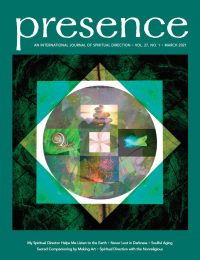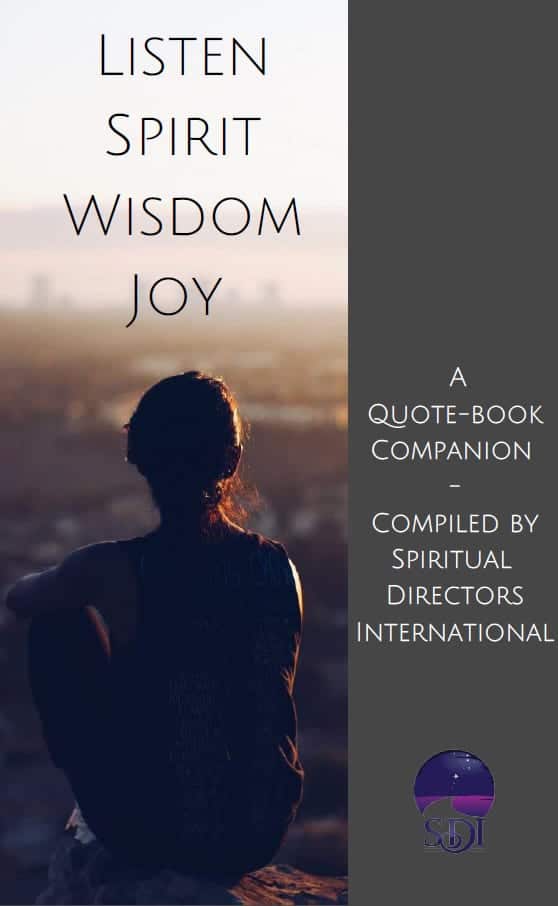How We Show Up: Reclaiming Family, Friendship, and Community
by Mia Birdsong (Reviewed by Karen Erlichman)
New York: Hatchette Books, 2020
272 pages
CAD $22.76, GBP £13.99, USD $16.99
 Many people come to spiritual direction to explore their deepest yearning for a sense of belonging, connection and identity, and their longing for fulfilling relationships and enduring support. Some people, particularly millennials and Generation Z young adults, seek community outside of historical or traditional religious institutions. In her new book How We Show Up: Reclaiming Family, Friendship, and Community, Mia Birdsong has curated a collection of interviews, stories, and snapshots of everyday life that illuminates the essence of authentic, creative relational networks of mutual connection.
Many people come to spiritual direction to explore their deepest yearning for a sense of belonging, connection and identity, and their longing for fulfilling relationships and enduring support. Some people, particularly millennials and Generation Z young adults, seek community outside of historical or traditional religious institutions. In her new book How We Show Up: Reclaiming Family, Friendship, and Community, Mia Birdsong has curated a collection of interviews, stories, and snapshots of everyday life that illuminates the essence of authentic, creative relational networks of mutual connection.
Birdsong’s website describes her as a “pathfinder, community curator, and storyteller who steadily engages the leadership and wisdom of people experiencing injustice to chart new visions of American life.” How We Show Up highlights these qualities in her writing, which offers heartfelt stories of chosen family, intergenerational friendships, and fiercely loving systems of support, particularly for people of color, LGBTQ+ people, working class, immigrants, and multiracial families.
Birdsong holds patriarchy and systemic racism squarely responsible for the “toxic individualism that creates barriers to deep connection and intimacy. When we are oriented toward doing it ourselves and getting ours, we cut ourselves off from the kinds of relationships that can only be built when we allow ourselves to be open and generous” (3). She opens the book by revealing her own challenges with these topics, recognizing how insidiously these historical and current systems of power are embedded into some of our lives. Birdsong is passionately committed to grass roots community organizing and progressive activism.
While this book is not explicitly defined as spiritual, there are spiritual threads woven throughout these themes and stories: “All of us have ancestral memory of what it’s like to live connected, interdependent lives. We may be cut off or too far away from those traditions to claim them, but we can listen to our needs, our longings, and through ritual, rite and practice build a way of being in the world that honors and makes tangible our connections to one another, to nature, and to spirit” (14).
Spiritual direction is a relationship in which people share these deeply felt needs and longings. As soul companions, we not only hear these yearnings, we also offer a space for people to imagine and even create rituals and practices. At its core, spiritual companioning provides a relational container for opening those connections in the most soulful, life-affirming ways. Birdsong emphatically asserts that “Another world is not just possible, but is emerging all around us” (21). Her cultural work indicates that the deepest, most generous, welcoming examples of family, friendship, and community can be found among the most marginalized people who “experience the most adversity and oppression…. Poor people, queer people, Black people, unhoused people—especially the women and gender-nonconforming people among them” (21). Because institutional power and oppression have historically and systematically destroyed, undermined, and inflicted genocide on these individuals and their families, alternative self-defined relationship and kinship networks have existed to support people to survive and thrive.
“We all have the capacity to hurt as well as the capacity to love, we have the power to diminish and lift up, to harm and heal…. Each person in our orbit has their gifts and growing edges. Each person is a variable that can change—shifting the makeup of the whole. Our trauma, wounds, and baggage add volatility. So, we must be present to the work of collective transformation out of pain and damage toward healing and growth” (25). Birdsong’s book especially highlights the creative, self-defined families and kinship circles of collective care created by LGBTQ+ people, especially those who are also people of color.
People need intentional and relational spaces in which to engage in the spiritual practice of unearthing our gifts, exploring our growing edges, and cultivating transformation, growth, and healing. For example, Birdsong has been part of a Black Women’s Freedom Circle, which she names as her own spiritual community. In this circle, she has found a collective experience of love, joy, and mutual support for bearing witness to each other’s grief, loss, and triumph.
Birdsong’s personal testimony, as well as the stories shared in this book, lift the power of mindfulness and chosen interdependence to heal and transform individuals, communities, and the planet. She offers examples of polyamorous couples, intergenerational families, and seemingly unlikely friendships that nurture and feed people’s bodies, minds, hearts, and spirits: “We are closer to spirit, to whatever is divine in us and the universe, through our connections with other people” (38).
This Review Appears In
Reviewer
Karen Erlichman, DMin, LCSW, provides psychotherapy, spiritual direction, supervision, and So(U)L coaching in San Francisco, California, USA. She is a consultant to The Dinner Party, and she also serves on the Professional Advisory Group for the University of California, San Francisco, Medical Center Spiritual Care Services Department. E-mail her at [email protected].



